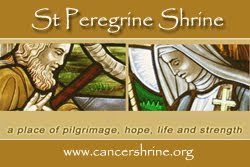In Chapter 3 of Thomas Keating's Manifesting God, we delve into the parable of leaven which states "The Kingdom of God is like leaven which a woman took and hid in three measures of flour till it was all leavened" (Luke 13:20-21).
Keating points out the taboo of leaven being consumed during the feast of Passover when all chametz (Hebrew for 'leavening') and it's products are removed from the Hebrew home. This Jewish law is so strict that it includes any item that is either fermented or can cause fermentation, such as yeast bread, certain cakes, alcohol, and corn syrup. The purpose is to honor the enslaved Israelites who were finally freed from Egypt, in the book of Exodus. Having left Egypt in such a hurry they could not wait for the bread to rise and so were left with unleavened bread for their journey.*
Jesus' mention of the use of leaven must have seemed very provocative to those following Him. If it represents slavery and corruption, then it must be seen as something to be avoided, not sought after. This would be a direct challenge to the people of the time, going against their preconceived notions of good and evil. Their first reaction must have been that of shock at the thought of comparing the two, as Keating points out.
When the leaven is not only likened to the Kingdom of God but done so in a hidden fashion, as Jesus remarks. The immoral implications are unmistakable to the Isrealites. Following the law assured them their lives were on the holy path, so how could Jesus say that God is hidden in the worst of places?
The explanation Keating offers is that their attitudes, and ours, of God are too limiting, "The Christian path is not about defining God, but of enlarging our idea of God. Even with the help of doctrine, rituals, good deeds, and moral certainties, without the experience of God's mercy and forgiveness, we do not really know who God is."
The parable focuses attention on the common tendency to impose our view of good and evil on the way we live, says Keating, and has made us "incapable of finding God in what, in our view, is moral evil. ..Actually, something that we do not want to happen may actually be the best thing that could possibly happen to us." Finding the Kingdom in the very thing we are avoiding demonstrates God's work for us is far beyond what we think of as our best of intentions. Keating points out, "A tragedy or disaster may be the only set of circumstances that can move us beyond our prepackaged values and preconceived ideas to a deeper level of relating to God in trust, self-surrender, and love."
During our Centering Prayer discussion period, leaven (yeast) was described as a rotting, fermenting organism, but also the only element that turns a nothing product such as flour into something to be sought after. Without yeast, water and flour combine into a body-less food that may have some nutritive value but very little appeal. Unleavened bread is hard, flat and falls apart too easily. It is the quick and easy recipe that has no time for a foreign matter which seems to work on its own mysterious terms.
If the leaven represents God, we must learn to trust Him to provide us with the lessons He wants us to learn, when He wants us to learn them. He hides these because He is calling us into the most loathsome of places, everywhere we'd rather not go. It is only then that He graces us with the opportunity to trust in Him as He takes and guides us. No matter how scary it gets, we must remind ourselves He is with us and in control.
"In the indignities and sufferings that we may experience, what is most painful is not what happens, but our attitude to what happens," says Keating. "This is why when we pray for deliverance from evil, God often does not take away our difficulties but joins us in enduring them...To suffer in union with Christ is to offer to those we love and try to serve the greatest of all gifts, the one we have been freely given: God's unconditional love."
*Source: Wikipedia: Passover
Sunday, September 12, 2010
Subscribe to:
Post Comments (Atom)










No comments:
Post a Comment